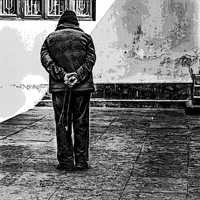Kinesiophobia dilemma for older adults: a systematic review

Accepted: 26 May 2020
HTML: 45
All claims expressed in this article are solely those of the authors and do not necessarily represent those of their affiliated organizations, or those of the publisher, the editors and the reviewers. Any product that may be evaluated in this article or claim that may be made by its manufacturer is not guaranteed or endorsed by the publisher.
Kinesiophobia is one of the pain complications which eventually might cause disability. Several studies showed correlation between age-related problems with kinsiophobia. The objective was to investigate clinical trials about managing kinesiophobia among older adults aged +65 years until March 2020. PubMed, CINAHL, Google Scholar, and PsycINFO databases were electronically searched until March 2020. All studies about kinesiophobia, with clinical trials, and randomized trials study design among older adults aged +65 years were included in the review. Two set of searching terms including ‘kinesiophobia AND intervention’ and ‘fear of movement AND intervention’ were used. From a total of 2669 articles, after excluding for different reasons, only three articles with total of 87 participants, mean age 68.5, all from Turkey related to the objectives of this study remained. Two of them were evaluated using two different physiotherapy approaches to manage neck pain and low back pain and one of them was regarding falls. Kinesiophobia was used as measure for the effectiveness of treatments. Older adults with routine and properly designed exercise and activity are healthier, with a lower probability for disability and therefore higher quality of life and longer healthy life. But to reach those goals, agerelated diseases and barriers should be investigated.
PAGEPress has chosen to apply the Creative Commons Attribution NonCommercial 4.0 International License (CC BY-NC 4.0) to all manuscripts to be published.


 https://doi.org/10.4081/gc.2020.9056
https://doi.org/10.4081/gc.2020.9056



